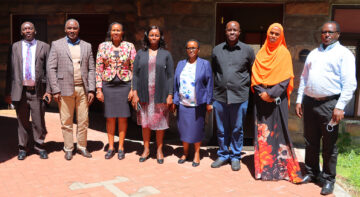News

Kenyan Members of Parliament on Thursday launched a caucus on evidence-informed oversight and decision-making (PC-EIDM), which seeks to advocate for use of evidence during oversight and decision- making among the Members of Parliament and other arms of Government.
The caucus, whose membership comprises both Houses, aims to:
- Sensitise Members of Parliament on the importance of using evidence in oversight and policy decisions and how these can be done;
- Promote the utilisation of evidence by House Committees’ Members during oversight of respective Government Ministries and programmes;
- Advocate for and facilitate the strengthening the capacity of key public institutions to provide the requisite evidence as well as the capacity of parliament to access and use evidence in its work;
- Advocate for a shift from Traditional Monitoring and Evaluation to Result-Based Monitoring and Evaluation by the Ministries; and
- Promote evidence-based engagement with the public (for example groups that bring petitions) and parliament.
“There’s need to increase the interest of parliamentarians as policy makers to appreciate the use of evidence in undertaking oversight and in the process of making policy decisions” said Hon Susan Musyoka, the co-convenor of the Caucus.
To achieve its objective the Caucus will utilise strategies including advocacy for strengthening technical capacity of parliamentarians and parliamentary committees in accessing and using evidence in their work, and legislation to encourage public investment in programmes that are effective and cost-effective.
House Committees will be sensitised on ways to engage the Executive in a bid to access the requisite evidence and data that is likely to inform their policy decision.
Some of the benefits that will arise from the formation of the caucus include:
- Reduced wasteful spending by the Government and even Members of Parliament themselves at Constituency level;
- Government Ministries will be compelled to focus on high impact interventions – programmes that are likely to deliver the best outcomes to Kenyans at reduced costs; and
- Strengthened accountability while enhancing the oversight role of Parliament.
The launch of the caucus has been made possible by the technical support of AFIDEP.
Related Posts





